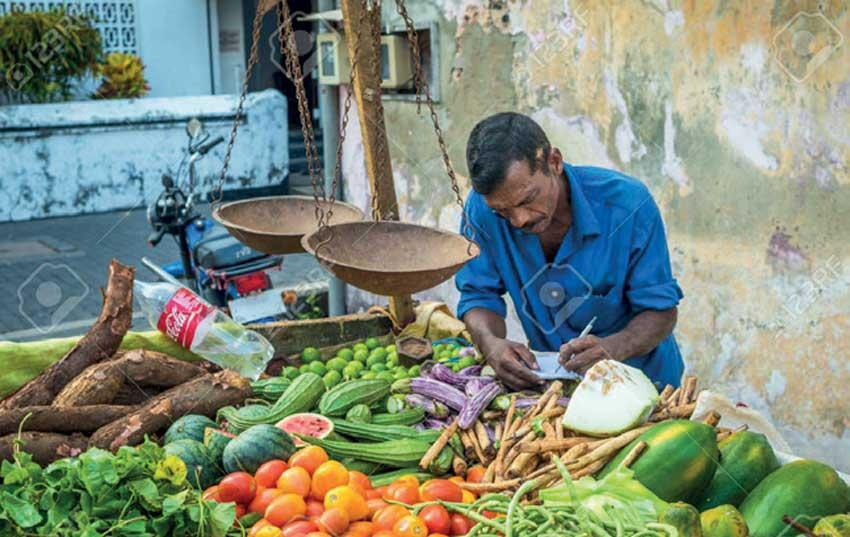Reply To:
Name - Reply Comment

UNDP Resident Representative Robert Juhkam presents ‘Charting pathways out of multidimensional poverty: Achieving the SDGs’ report to State Minister Shehan Semasinghe
As Sri Lanka is faced with the added challenge of dealing with the social consequences arising from the COVID-19 pandemic, the United Nations Development Programme (UNDP) expressed concerns on the country’s rising levels of poverty and widening inequalities.
“As the country prepares to recover from this crisis, a holistic and multidimensional approach must be taken, beyond the traditional monetary measurement of poverty,” the UNDP said recently.
The 2020 global report on the Multidimensional Poverty Index (MPI) entitled ‘Charting pathways out of multidimensional poverty: Achieving the SDGs’, launched recently, pointed out that 4.1 percent of the population in Sri Lanka live below the national poverty line, with 14.3 percent vulnerable to multidimensional poverty.
According to the report, the ongoing pandemic will likely create additional pressures on vulnerable and marginalised groups and addressing each challenge requires a different approach, many of which need to go beyond improving income, to ‘build forward better’ post COVID-19.
In an attempt to have a comprehensive analysis of the poverty levels in the country and to identify the segments that are most affected, the UNDP and Oxford Poverty and Human Development Initiative (OPHI) stressed the need to have a multidimensional approach to poverty in Sri Lanka.
The MPI would allow the analysis of poverty beyond income deprivations and identifies multiple deprivations at the household and individual level in health, education and standard of living.
Speaking on the relevance of the tool in Sri Lanka, Samurdhi, Household Economy, Microfinance, Self-Employment and Business Development State Minister Shehan Semasinghe stressed it is imperative for the country to underpin its policies and interventions using data and evidence presented in the 2020 global report on the MPI.
“This is key to ensuring that Sri Lanka harnesses the COVID-19 crisis to leap forward towards the aspirations of our national policy framework and the 2030 Agenda for Sustainable Development,” he said at the report launch.
UNDP Resident Representative Robert Juhkam affirmed commitment to the endeavour by stating that as the technical lead on socioeconomic recovery, the agency is well positioned to support the relevant state departments to introduce a multidimensional approach to poverty in Sri Lanka and design a future that looks beyond recovery and towards 2030.